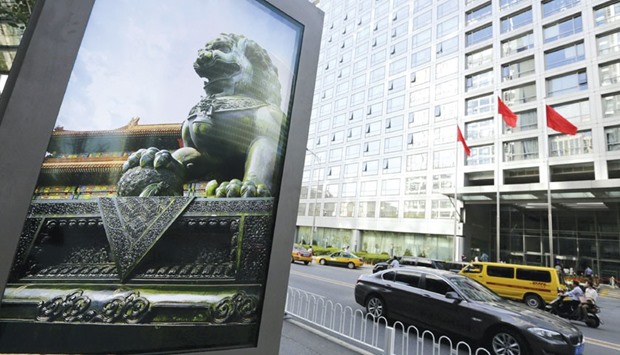Chinese regulators have renewed restrictions on the amount of stock major corporate shareholders can sell as authorities move to allay panic among equity investors.
Starting today, major investors are permitted to sell no more than 1% of a company’s shares on the open market in three months, the China Securities Regulatory Commission said in a statement on Thursday. The rule doesn’t apply to transactions such as block trades and transfer agreements, and replaces an existing six-month ban on any secondary market sales that was due to expire, it said.
“This is a positive for the stock market because fears that major shareholders may start cutting stakes when the ban expires were an important factor behind the stock market’s falls this week,” said Zhang Yanbing, a Shanghai-based analyst at Zheshang Securities Co.
The Shanghai Composite Index tumbled 6.9% on Monday and slid another 7.3% on Thursday before automatic circuit breakers halted trading, prompting the CSRC to call an unscheduled meeting the same day to discuss the market. Investors were rocked last summer by a 43% rout in the index, which prompted government support including the CSRC’s previous ban on stock sales by major shareholders.
Thursday’s slump forced at least one fund - Shanghai Heqi Tongyi Asset Management Co - to dump its holdings. Many private funds and hedge funds in China have agreements with investors spelling out mandatory liquidation levels if their holdings drop below a certain value.
Chen Gang, Heqi Tongyi’s chief investment officer, said he won’t consider getting back into the market until the “overhang” associated with sales by major shareholders is gone and the CSRC improves its circuit-breaker system. Officials at the agency would be discussing the circuit breakers at their Thursday meeting, a person with direct knowledge of the matter said.
The CSRC’s new limit for major shareholders only applies to stock sales made through aggregate auctions on the open markets and the investors are required to give a 15-day notice before they dispose of the equity, the regulator said.
The new rules are aimed at ensuring “legal and orderly” disposals by major holders, the regulator said. Their implementation doesn’t mean state funds will exit from the market and there will be no change to their roles of stabilizing equities.
“The new rules will help form stable market expectations and defuse panic sentiment,” the CSRC said.

An advertising board (left) showing a Chinese stone lion is pictured near an entrance to the headquarters (right) of China Securities Regulatory Commission in Beijing. Starting today, major investors are permitted to sell no more than 1% of a company’s shares on the open market in three months, the CSRC said.
